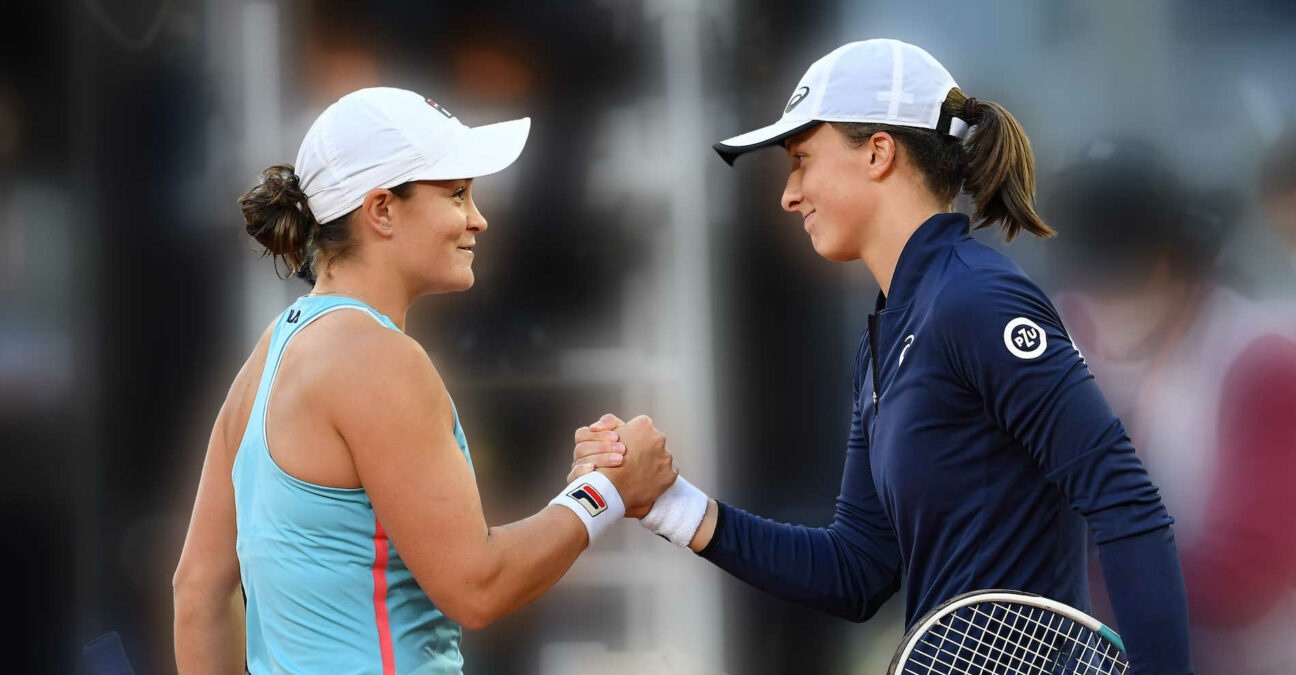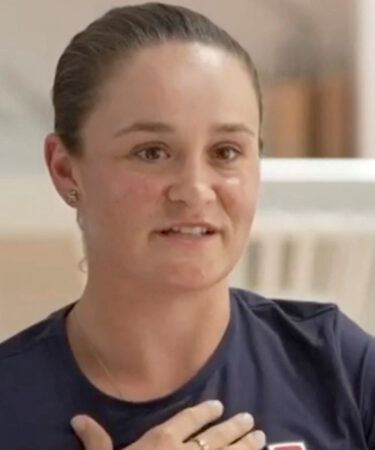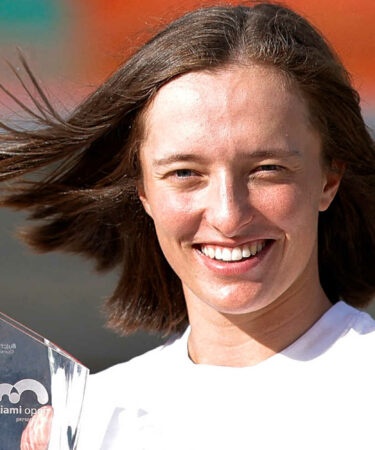“I couldn’t stop crying” – Swiatek remembers Ash Barty’s shock retirement
Barty bowed out when she was at the top of the game, vacating the world No 1 spot she held at the age of 25 – one that would be filled by Iga Swiatek
 Ashleigh Barty vs Iga Swiatek, Madrid 2021 © Antoine Couvercelle / Panoramic
Ashleigh Barty vs Iga Swiatek, Madrid 2021 © Antoine Couvercelle / Panoramic
Iga Swiatek‘s rise to the top of the WTA rankings was an unconventional one.
Despite surging to a career-best position of No 2 in the world in March 2022, largely due to her run to the last four of the Australian Open that January, the Pole was still firmly behind the undisputed leader of the WTA pack – Ash Barty.
That is, until Barty sent shockwaves rippling through the tennis world by announcing her retirement that month.
At the age of 25, Barty was the runaway world No 1, the reigning Wimbledon and Australian Open champion and possessed a unique level of quality that set her apart from rivals. It seemed unlikely that Barty’s supremacy would be challenged any time soon.
Barty’s retirement left a void to be filled at the top of the sport
But the then 25-year-old Queenslander would prove to be as anomalous off court as she was on it. On 23rd March 2022, Barty decided she’d had enough of the demands of tour life and bowed out of the sport as so few ever do – at the very top of her game.
“I was sobbing. I couldn’t stop crying,” is how the current world No 1, Swiatek, recalls reacting to the news of Barty’s retirement.
“It might sound strange, but I was so confused and shocked that Ash was 25, and she was retiring,” the Pole told The Players’ Tribune recently.
Barty’s retirement blindsided the entire tennis community, but for Swiatek it had a uniquely direct and personal impact.
“There was some confusion about what was going to happen because I had only been world No 2 for three days,” Swiatek explains.
Becoming world No 1 is a career pinnacle that all leading tennis players aspire to, yet only a very elite few ever achieve. To be thrust upon that summit so unexpectedly and suddenly would bound to leave even the most level-headed of players with a strange concoction of mixed emotions.
“I always had this image in my mind that you retire when you’re 32, and your body can’t cope anymore,” Swiatek continued.
“I also felt like Ash has the best tennis out there, hands down. I couldn’t wrap my head around it. I didn’t know if she was unhappy or something.”
iga swiatek proved a more-than worthy no 1
Swiatek did not just fill the vacant position at the top of the WTA rankings, she utterly owned it. The breathtaking levels of tennis the young Pole hit over the course of the next two seasons more than validated her spot at the very top of the women’s game.
The on-court evidence shows a strong likelihood that Swiatek would have become world No 1 regardless of Barty’s retirement. The fact that the two never had the chance to create a long-lasting rivalry of their own is one of tennis’ greatest and most regrettable lost treasures.
But having had nearly two years at the summit herself, and having had time to reflect on Barty’s departure from the sport, Swiatek understands the intense pressures and scrutiny that being the leader of the pack entails.
For this reason, Swiatek now fully understand Barty’s decision.
“I watched the video on Instagram, and I understood. Right now, I understand it even more,” she explains.
“There are these ideas that we have in ourselves as players that come from our parents and tennis and media and all this about how an athlete should be.
“But when I saw Ash, I was like, ‘Wow, you can choose to do this differently’. While you’re on this journey, striving for excellence, you can sometimes say, ‘Okay, that’s enough.’ You’re in control, the whole way. No one else is driving the car.
“If there is some secret to my success in the last year, it’s giving myself that freedom to not care what people think.
“That’s what led me to winning another Grand Slam and the third one. That’s what led me to No 1. Letting go. When I have moments now where I feel a little bit insecure, that’s what I remind myself of.”
deeper lessons learnt from barty’s departure
Barty and Swiatek may have only crossed swords a handful of times on the tennis court, but Barty’s passing of the torch to the Pole has left an impression on Swiatek deeper than any lesson she was likely to learn from playing the Australian.
The understanding that a player has the freedom to choose their own path, to navigate their life and career in a way that is uniquely fitting to them, is a golden lesson that is too often lost in the seemingly endless cycle of public pressure and constant scrutiny.
While Barty’s retirement may have denied tennis a rivalry for the ages, perhaps the deeper lessons learnt from the Australian’s display of autonomy has allowed the WTA’s current brightest star to shine in the way that she so brilliantly does.












